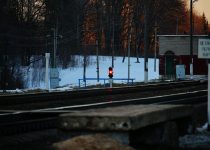Why Aren’t My Outdoor Lights Working? (Possible Causes)
You go outside and look around but everything seems to be in order. You realized that the outdoor lights that you paid hundreds of dollars for aren’t working. What is going on?
Lets start by looking into some possible reasons why your outdoor lights aren’t working.
What Causes Outdoor Lights to Not Work?
Here are some common reasons why your outdoor lights are not working:
Power Outage
Your Outdoor light might not be working due to a power outage or an electrical problem. If you have outdoor lights that are constantly tripping, it could mean your circuit breaker has been reset or the fuse is blown. You can check this by using a multimeter and testing each of these components individually.
If one component works fine but another doesn’t, then there’s probably something wrong with the wiring in between them. It may also be possible for someone else to trip the circuit if they’re close enough to see what’s going on.
To prevent this from happening, make sure all exterior lighting fixtures are installed properly so no wires come into contact with anything metal.
Tripped GFCI
Water can get into your electrical outlets when there is a storm. This causes the circuit breaker to trip and turn off all power in your home for safety reasons. If you have outdoor lights installed on an outside wall, they will be affected by this as well.
The solution: Install flood-proof receptacles so that when it rains, the electricity won’t go out. Flood proofing means installing special covers over the outlet box which prevent rain from getting inside. You should also check if any wires are exposed at ground level. If not covered with conduit, then these could get wet during heavy storms.
In addition, make sure that the wiring itself isn’t damaged. This includes loose connections, broken wire ends, etc.
Tripped Breaker
If you have a tripped breaker, it means that the circuit is overloaded. The problem could be caused by an overload of current in one or more circuits on your electrical panel. If this happens often enough, the fuse will blow and need replacing. You may also want to check for loose wiring connections at the fixture itself.
Also, Your home can be damaged by lighting during storms. This will cause a problem with your electrical panel.
Bad Light Bulbs
Another obvious reason why your outdoor lights are not working is because the bulbs are broken Make sure that all bulbs are securely fastened to their sockets. Also, don’t forget about those dimmers! They can sometimes interfere with the bulb’s ability to operate properly.
Damaged Fixture
Outdoor lighting fixtures can become damaged due to weather conditions such as wind, ice, snow, hail, lightning strikes, vandalism, animals chewing through cables, etc. When this occurs, the fixture needs repair.
When repairing a damaged fixture, first try cleaning up debris around the area. Then, remove the cover plate and inspect the fixture carefully. Look for damage to the glass lens, screws holding down the shade, mounting hardware, etc.
Next, replace missing parts like shades, lenses, reflectors, etc. Be careful not to touch the hot part of the fixture while doing this. Use caution when handling tools and materials.
How To Make Outdoor Lights Last?
There are many ways to extend the life of your outdoor lighting fixtures. Here are some tips to help keep them running smoothly throughout the year.
1) Clean regularly – Dirt buildup on exterior surfaces can block sunlight and reduce visibility. It can also lead to corrosion problems. So clean your outdoor lighting fixtures atleast once a month or two.
2) Check fuses – Overloaded circuits can result in blown fuses. A blown fuse indicates a shorted circuit somewhere within the circuit. Inspect your outdoor lighting fixtures for signs of overheating.
3) Change bulbs – Changing out light bulbs reduces energy consumption and extends the life of your outdoor lights. Choose high quality bulbs that last longer than standard incandescent bulbs.
4) Install motion sensors – Motion detectors work best outdoors. Installing them near windows and doors allows you to detect intruders without turning on interior lights.
6) Seal cracks & crevices – Cracks and crevices allow moisture to enter which leads to rusting and deterioration. Sealing these areas prevents leaks from damaging your outdoor lighting fixtures.
7) Maintain equipment – Regular maintenance ensures that your outdoor lighting fixtures continue to function effectively. This includes inspecting electrical connections, checking wiring continuity, replacing worn or loose components, and lubricating moving parts.
8 ) Avoid harsh chemicals – Using harsh cleaners and solvents may cause damage to your outdoor lighting fixtures. Instead, choose milder products designed specifically for outdoor applications.
9) Consider LED technology – LEDs offer several advantages including long-lasting performance, low power usage, improved durability, and reduced heat generation. These benefits make them an excellent choice for outdoor lighting fixtures.



